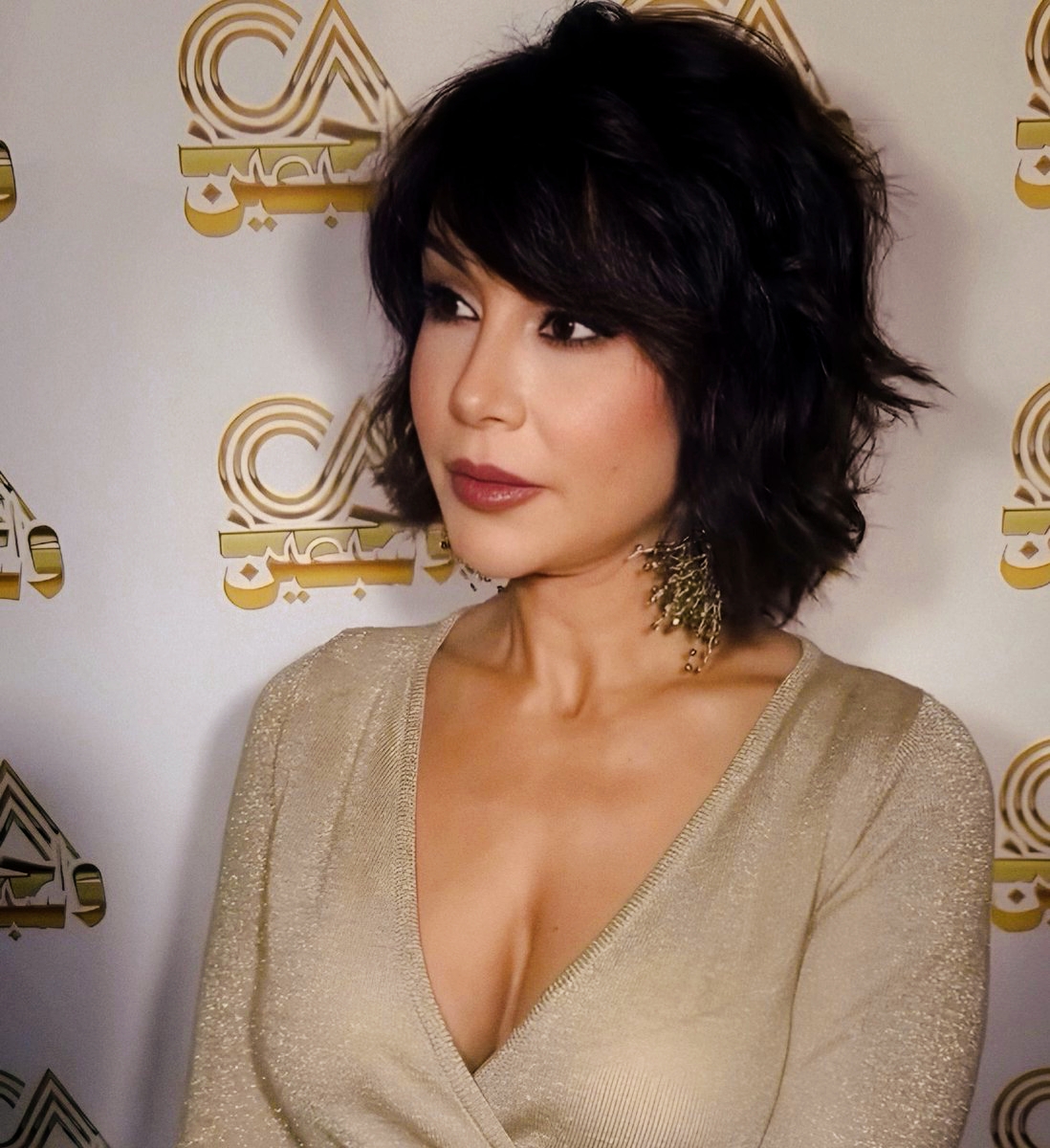Karis Bashar Supports Shukran Murtaqa After the Controversy: "Don't Worry"

After the storm caused by the second episode of the show "Oh La La" hosted by the Syrian actress Shukran Murtaqa on the Syrian "L.T.V." channel, the star Karis Bashar broke her silence to announce her full support for her colleague, confirming that she "did not make a mistake at all" and that she only expressed her opinion in a phase she described as one where Syria has become a country for all Syrians.
Karis said in statements reported by local media:
“Shukran only expressed her opinion, and she did not make a mistake at all; we are in a phase where everyone has the right to speak and express their opinion, while respecting all viewpoints and their differences.”
She also sent a special message to her friend in the Syrian dialect, saying:
“Don't worry.”
Bashar clarified that Murtaqa did not get involved in bloodshed nor did she offend anyone, considering that the attack on her on social media is part of the amount of evil spread in the virtual world, affirming her personal distancing from social media for this reason.
* The Beginning of the Controversy
The story began last week when Shukran Murtaqa hosted director Saif Al-Din Sbeih in her second episode of her show "Oh La La", where they discussed the political and social situations in Syria.
The episode sparked a storm of controversy due to Sbeih's statements, which critics saw as “glorifying the Assad regime,” while supporters considered that he spoke boldly about the Syrian reality.
Sbeih said in his talk:
“Changing individuals in positions does not mean the fall of the regime or its transformation; we change individuals, but the approach remains the same.”
He added that “what we are living today is a rare opportunity to express opinions, and we must take advantage of it before it closes again,” warning that “reducing the Syrian society to one color is a danger to the cohesion of the nation.”
The director also directed sharp criticisms at the Syrian Artists Syndicate, describing its decisions as “arbitrary and non-transparent” regarding the expulsion of members and allowing them to work.
He pointed to what he described as "the duality" in the syndicate's dealings with some well-known artists who support the previous regime, such as Salaf Fawakhri and Wael Ramadan.
* Controversial Questions
Although Shukran Murtaqa did not express a clear position on her guest's statements, her questions were considered provocative by some viewers, especially when she asked:
“Has the revolution borne fruit?”
“And is what is happening today what the revolutionaries wanted?”
She also compared the political life in Lebanon, which she described as “diverse,” to what she called “the culture of one color” in Syria, which opened her up to a wide range of criticisms.
* Account Closures and Reactions
Following the airing of the episode, Shukran Murtaqa's name topped the trending lists in Syria and Lebanon, and comments were divided between those who accused the show of being “an attempt to polish faces associated with the regime,” and those who saw that Sbeih criticized the state indirectly, finding Shukran caught in the crossfire of both sides.
Initially, the artist responded briefly via “Facebook,” saying: “My respect for everyone,” then she published a series of clarifications before announcing the permanent closure of her accounts on Facebook and the “X” platform, justifying that she wanted to distance herself from “the amount of hatred spread.”
* Support from Karis Bashar
At the end of the wave of controversy, Karis Bashar's statements came to restore balance and ease the intensity of the attack on Murtaqa, confirming that Shukran is a beloved and sincere artist, and that she paid the price for her honesty, adding that what is happening in campaigns on social media does not reflect the reality of artists or the Syrian reality.
Thus, Karis Bashar became the first prominent Syrian artist to publicly defend Shukran Murtaqa since the outbreak of the controversy, in a position that many found to be a message of feminine and humanitarian solidarity amid a sharp division in the Syrian artistic scene.
